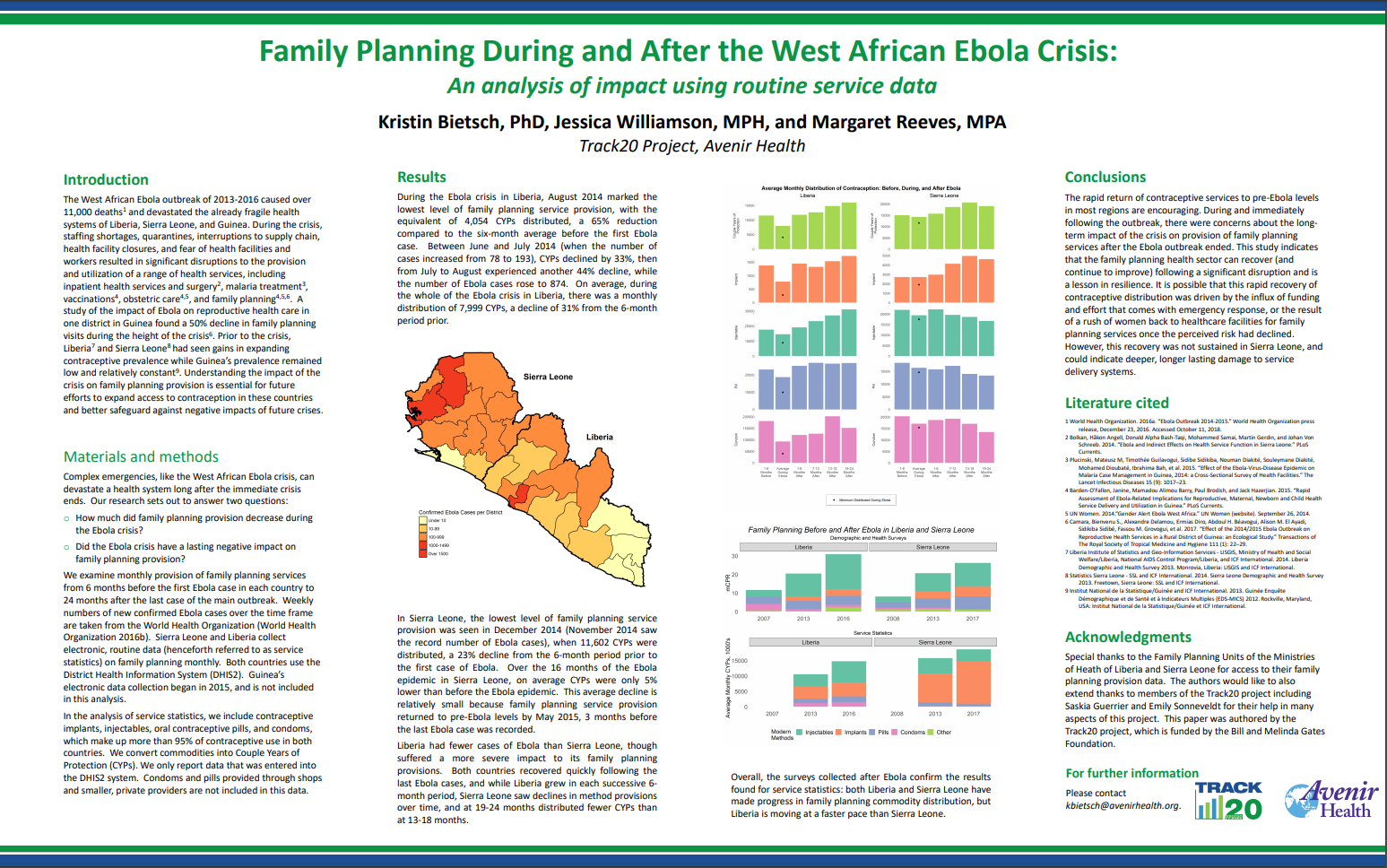The West African Ebola outbreak of 2013-2016 had the potential to devastate family planning programs in affected countries, which had made great progress in years prior. Track20 examined monthly provision of family planning services statistics from government sources for Liberia and Sierra Leone from 6 months before the first Ebola case to 24 months after the last Ebola case to measure the impact during and after the epidemic. By calculating the couple-years of protection from service statistics, we find that family planning distribution declined by 65% in Liberia and 23% in Sierra Leone at the peak of the epidemic. Two years after Ebola, Liberia's average monthly contraception distribution is 39% above pre-crisis levels, while distribution in Sierra Leone increased by 27%, findings echoed in surveys data from the Demographic and Health Survey and Multiple Indicator Cluster Survey. Increased contraceptive use comes from implants in both countries, and injectables in Liberia. This study indicates that the family planning sector can recover, and continue to improve, following a significant disruption and is a lesson in resilience.
Download the report, Family Planning Before and After the West African Ebola Crises, published in the March 2020 issue of Studies in Family Planning:
Family Planning Before and After the West African Ebola Crises
Download the presentation on this research presented at the International Conference of Family Planning 2018:
Family Planning During and after the Ebola Crisis: Evidence from Liberia and Sierra Leone
Download our poster about this research presented at the Population Association of America 2019 meeting:
